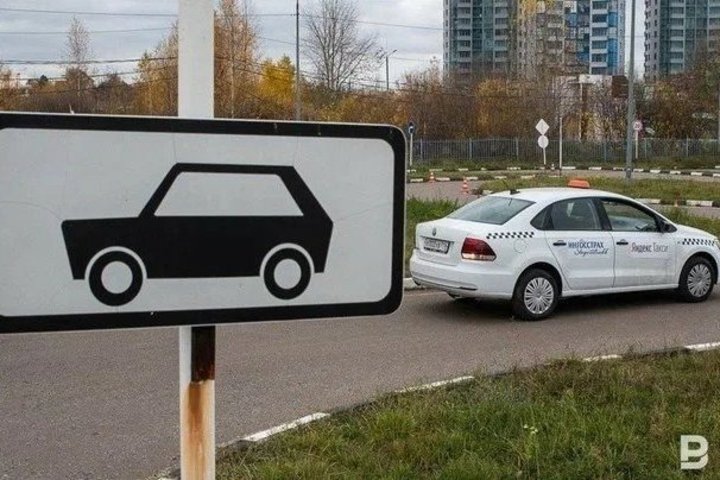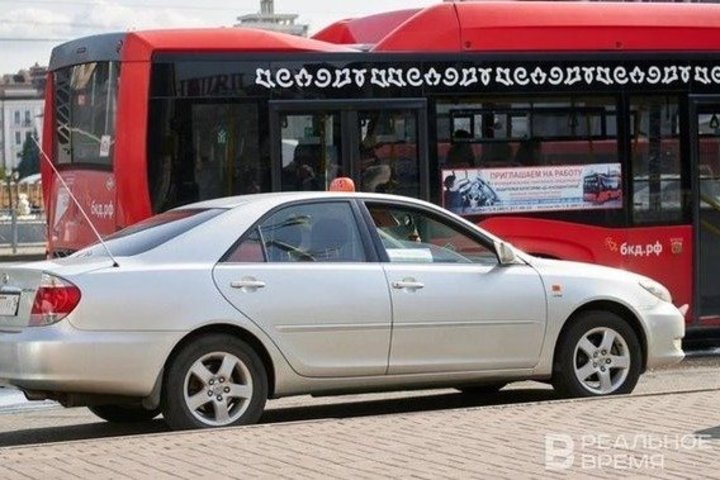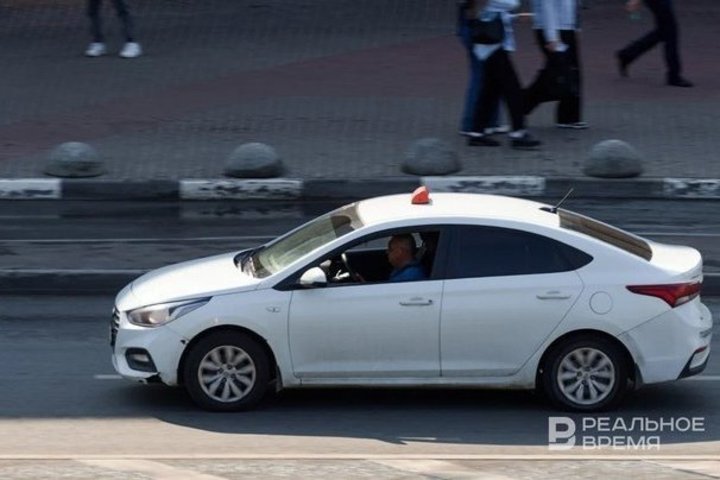‘Payback will be in a few days’: a Kazan businessman proposes to create a municipal taxi
Alexander Bratchikov is going to fight the monopoly of aggregators

A businessman from Kazan Alexander Bratchikov is trying to achieve the adoption of a law to limit monopoly in the market and create a municipal/regional taxi in Tatarstan. He believes that the cities of the republic will make a profit from the very first day of launching services similar to Yandex. Taxi. According to him, one-time investments in the amount of 20 to 50 million rubles can pay off in hundreds of billions of revenues, what is more — annually. What is the main idea of a municipal taxi, how it will work and what prevents the implementation of this project — he told the interview with Realnoe Vremya.
“It is more important that the income will not go offshore”
Alexander, tell us about your idea.
At some point many years ago I had to work as a taxi driver. I've had this experience for just a couple of months. I realised how thankless this job is, with low prices, and I decided to fix it somehow. I read literature on other countries. I saw that many of them go on strikes and aggregators like Uber are banned there. The logic is this — in normal countries, there is a normal job of a taxi driver paying taxes, and if there is dumping from a structure that bypasses these taxes and reduces the price, then this category of workers suffers losses. Moreover, it is important that drivers, working for aggregators, drive their cars, not realising that there is also depreciation. When you drive around the clock, the car wears out quickly. And this is a psychological “cheating” of drivers on the part of the aggregator.
And I noticed that taxi fares are the lowest in Russia. They are even lower than in the poorest country in Europe — Romania. I thought, why not follow the example of Western countries and do the same in our country. Since I worked with the administrations, it was not difficult to contact Rustam Minnikhanov, he redirected my appeal below. I met with the deputy head in charge of transport in Kazan, Ildar Shakirov and Aidar Abdulkhakov from the Transport Committee. And 2-3 times. The meetings went great. But they couldn't decide anything further on their own level.
Where did you get examples of such a taxi?
I took examples from other countries, for example, Uber was banned in Germany, where the company works exclusively with car rental companies and their licensed drivers. The court ruled that such a model violates the rules of fair competition and in order to provide such services, Uber must obtain a car rental license itself.
Also in 2019, the London authorities refused to renew Uber's license, and later the company also appealed against this decision. Besides, the aggregator was banned in Turkey, citing that the country has its own aggregators. In addition, the company left Bulgaria, Denmark and Hungary. The company's operations are limited in France, Italy, Germany, Japan and Taiwan. These countries made this decision for a reason.
I would like to understand which cars will work in such a taxi, will the city buy them itself or will the drivers work on their own?
As for cars and applications, everything will remain one-on-one, as Yandex has. Taxi. There will be the same application. It is developed almost “on the knee”. Any application is developed this way. The entire commercial policy will remain the same. Maybe the commission will become a little less. Not 20%, but, for example, 10%. But it doesn't matter. More importantly, the income will not go offshore, but will remain in the region. And drivers will have the opportunity to work both on their own cars and on rented ones. So everything will remain as it is. In fact, the income of all layers will increase. Plus, it will remain in the region.

What about the colour of the car, because by law they all have to be the same colour?
In my opinion, the colour is not important at all. This makes sense in very strong economies. In Russia, this is pointless and unnecessary costs. And very big ones. If everything works well, then you don't need to make things worse.
How, according to your idea, will the fare for such a taxi change, according to what formula will it be charged, how much will a kilometer cost?
I think that everything can remain as before, that is, the tariffs that are in the aggregators.
“The profit will be from 80 to 160 billion rubles”
You indicated that you held meetings with government representatives, how did these meetings go, what did you manage to agree on?
There were many meetings. In short, it was taken away from the city. I've even seen articles in the media. I also met with the Ministry of Transport of the Republic of Tatarstan, and specifically, with First Deputy Minister of the Republic of Tatarstan Vyacheslav Egorov, plus with Lenar Safin, there were about 15-20 meetings in total when he headed the department. In short, they really liked it, they really wanted to implement this project themselves, but they could not initiate it. It was necessary to contact the State Council of the Republic of Tatarstan and the State Duma of the Russian Federation. I sent a letter to the State Duma with a proposal to introduce into the upcoming taxi law a proposal on the possibility of each region to ban aggregators in its region at will and introduce its own municipal/regional taxi. As a result, even the relevant State Duma committee supported this idea. He interviewed the regional Ministries of Transport of the Russian Federation, and they were also very supportive.

How much do you estimate the implementation of your project? Should the regional government allocate funding, or are you planning to attract some investors?
The costs of the project are minimal. In fact, if the law is passed, it is enough to find a developer company and create a taxi program. In principle, I can become such a company, and as the initiator of the project, I know how to take into account the interests of all parties. As far as I know, Yandex bought its programme partially from Uber and Chuvash developers. There is nothing complicated in the program itself, the only difficulty there is the maps. Yandex provides access to the map for its company for free, while others use it for a fee or use other maps, such as 2GIS, etc. They are worse than Yandex maps, but they can also be used.
The most important thing in terms of costs is the cost of the program, it costs in the range of 20-50 million rubles, and even if it costs 150 million, if the profit is from 80 to 160 billion rubles annually, then it will immediately pay off. If this program is provided to other regions, then Tatarstan could receive some kind of its own commission, and the profit will grow significantly — up to several hundred billion rubles annually.
In the roadmap, you indicated the developers of Yandex, why, for example, developers from Innopolis cannot deal with this issue, have you contacted any of them or the city itself?
It is also possible to contact Innopolis or any other company. Here, at this stage, they are not important, but the decision at the top is fundamentally important. Namely, to make a decision in the State Duma — to legalise a taxi in an edition that allows regions to launch it at their discretion, municipal revenues from which would go to the region, and it is important to be able to ban all third-party aggregators. This is common in many countries.

“The budgets of cities will become many times larger”
How do you assess the payback of your project? In how many years will it start making a profit, for example, within the city?
The profit will start coming from the first month. If the income from taxis per year is 80-160 billion rubles in the Republic of Tatarstan alone, then Tatarstan will be able to receive about 7-15 billion rubles per month for the region. This is a huge figure. The costs, however, should be about 50 million rubles, which will be spent on developing an application program similar to the existing ones.
Do you think your project can knock Yandex out of the market?
Certainly. Therefore, owning a profit of about 0.5'1 trillion rubles annually, Yandex makes every lobbying effort to prevent this. In fact, the money from the profits will greatly strengthen and improve our cities. Not only Kazan, but all other cities of the republic. The budgets of cities will become many times larger. This includes improving infrastructure, roads, parks, schools to the highest standards, and increasing citizens' incomes. Now it is blocked by lobbyists of one of the aggregators.